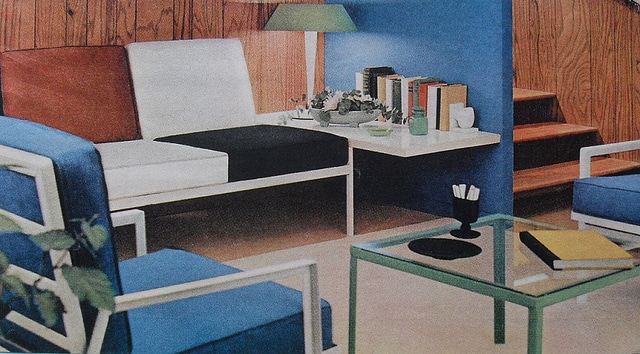How Minimalism Can Change Your Life and Area right
Recognizing Minimalism: Methods for Minimizing Mess and Enhancing Quality in Everyday Living
Minimalism is progressively recognized as a sensible technique to improving clarity and focus in today's chaotic world. By systematically reviewing our properties and focusing on intentionality, we can produce areas that not just show our worths however also advertise psychological wellness.
Specifying Minimalism and Its Advantages
Specifying minimalism includes comprehending it as a lifestyle option that emphasizes simplicity and intentionality in both everyday regimens and physical possessions. At its core, minimalism motivates people to prioritize what truly matters, enabling for an extra purposeful and focused existence. By removing the non-essential, minimalism invites individuals to involve deeply with their surroundings and experiences.
The benefits of embracing a minimal strategy are multifaceted. It fosters mental clearness, as minimizing mess in one's environment can lead to lowered distractions and stress and anxiety. Individuals commonly report boosted concentration and boosted efficiency when bordered by less properties. Minimalism promotes financial liberty; by focusing on requirements over wants, individuals can make even more educated getting choices, leading to prospective cost savings and decreased debt. A minimal lifestyle can generate emotional benefits, as it encourages people to grow gratefulness for what they have rather than yearning for more.
Inevitably, minimalism is not merely regarding worldly reduction but involves an alternative shift in point of view, promoting a life defined by balance, function, and fulfillment. Embracing this way of life can bring about profound modifications in exactly how people engage and regard with the world around them.
Examining Your Existing Mess
Mess commonly manifests as an overwhelming build-up of things that no longer offer an objective, developing an obstacle to achieving a minimal way of life. To efficiently evaluate your existing clutter, it is necessary to take on an organized method. Begin by recognizing the locations in your home that feel overwhelming or chaotic. Remember of certain categories of items, such as garments, books, or cookware, as this will help you comprehend the extent of the clutter.
In addition, consider the frequency of usage for every item. If something has not offered a function in the past year, it might be a candidate for removal. This assessment will not just clarify your relationship with your ownerships but will certainly additionally set the structure for effective decluttering in the future. Ultimately, understanding your existing clutter is a crucial step towards accepting minimalism and enhancing quality in your day-to-day living.

Practical Decluttering Methods
Having actually assessed your present mess, the following step is to execute sensible decluttering methods that facilitate an even more arranged living area. Minimalism. One reliable method is the "Four-Box" strategy, where you mark four boxes classified: keep, donate, garbage, and relocate. This method urges quick decision-making and makes sure products are categorized appropriately
Another technique is the "One in, visit this page One out" policy, which states that for every single new product gotten, an existing product should be removed. This principle assists preserve balance and protects against buildup gradually. In addition, consider the "30-Day Minimalism Game," where click this link you eliminate one product on the very first day, 2 on the 2nd, etc, cumulatively fostering a sense of accomplishment.
Limitation on your own to a specific number of valued products, enabling you to value their relevance without frustrating your area. By using these techniques, you can produce an extra serene and effective living room, inevitably improving clarity in your day-to-day life.
Producing Deliberate Areas
Developing willful spaces involves a thoughtful strategy to how we layout and arrange our environments, guaranteeing each area serves a specific function and mirrors our values. This technique is essential in growing a feeling of clarity and purpose in our everyday lives. By seriously assessing the feature of each area, we can eliminate disturbances and improve our general health.
To create intentional rooms, begin by determining the key activities that will certainly happen in each area. As an example, an office should be designed to cultivate efficiency, integrating elements such as ample illumination, comfortable furniture, and marginal distractions. On the other hand, a leisure area need to promote peace, including soothing shades and comfortable seats.
In addition, think about the psychological effect of your surroundings (Minimalism). Including individual items that reverberate with your values, such as artwork or plants, can boost the connection to your space. Frequently examine these environments to guarantee they continue to serve their desired purpose as your requirements advance
Ultimately, creating willful rooms has to do with making mindful options that line up with your lifestyle, advertising harmony and efficiency in your living and working atmospheres.
Maintaining a Minimalist Attitude
Embracing a minimal mindset calls for ongoing reflection and intentionality in our ideas and activities. This technique involves growing understanding of our worths and concerns, enabling us to filter disturbances and concentrate on what genuinely matters. To preserve this state of mind, normal self-assessment is important. Set aside time to assess your commitments, belongings, and even digital content, ensuring they straighten with your core concepts.
Another key strategy is to exercise thankfulness. Recognizing what you already possess fosters contentment and decreases the desire for excess. This shift in perspective urges appreciation for simplicity, enhancing total well-being. Incorporating mindfulness techniques, such as reflection or journaling, can better enhance a minimal mindset by advertising clarity and reducing mental clutter.
Additionally, develop borders to protect your energy and time. Learn to claim no to non-essential commitments and distractions from this source that do not add to your personal growth. Border yourself with like-minded people who sustain your minimal journey, as shared worths can improve inspiration and responsibility.
Conclusion
To conclude, accepting minimalism offers substantial advantages, including minimized mess and improved clearness in day-to-day live (Minimalism). By systematically assessing belongings and implementing functional decluttering methods, individuals can produce deliberate areas that foster mindfulness and thankfulness. Maintaining a minimalist attitude calls for ongoing analysis and dedication to simpleness, ultimately resulting in a much more focused and fulfilling way of life. The principles of minimalism function as useful tools for cultivating a setting that sustains individual growth and well-being.

In addition, take into consideration the "30-Day Minimalism Video Game," where you eliminate one thing on the very first day, two on the 2nd, and so forth, cumulatively fostering a feeling of success.
In verdict, embracing minimalism uses substantial benefits, including reduced clutter and boosted quality in day-to-day life.